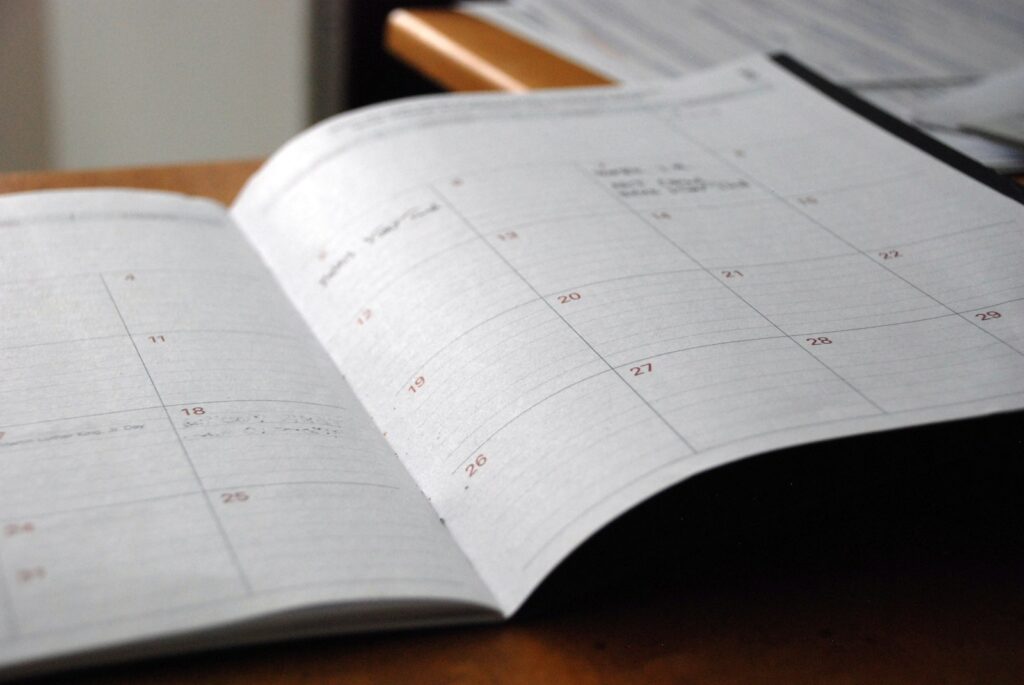Car accidents, job loss, appliance breakdowns, and a death in the family- these situations are all completely different, but they have two things in common: they are unexpected, and you don’t plan for them. Unexpected life events are bound to happen at some point in your life. They can bring about a slew of emotions, overwhelm you, and have a way of throwing you off course.
One of the hardest unexpected situations I’ve experienced was when my mother was in the hospital with an illness. I expected her to come back home as usual. She came back home, but not in the way I had planned. She was put in a Hospice program with nurses coming in three days a week. The objective was not for her to get better; it was to make her comfortable as her life was coming to an end.
It was a very difficult time in my life. I felt like my world was spinning out of control. All of a sudden, I had new responsibilities, new things to learn, and new people to contact and interact with on a daily basis. With the knowledge that my mother was not going to be around much longer, I felt very overwhelmed. But then I started thinking about all the tools and resources I already had in place to help me deal with this situation and help me function (almost) like normal.
In this article, I’m going to show you 15 tools and resources that you can put in place before unexpected events happen in your life. These tools and resources should help cut down on the overwhelm, save time, save money, and keep as much normality in your life as possible when the unexpected does occur.
Unexpected Life Events Examples
First, here are some examples of unexpected events that might suddenly pop up in your life:
- Loss of job/unemployment
- Moving
- Divorce
- Disability
- Major illness of you or a loved one
- Being a caregiver for a loved one
- Car accident
- Car troubles
- Accident or illness of a pet
- Home appliance breakdowns
- Home damage
- Death of a loved one
Expected Life Events Examples
There are also some events in your life that you may plan for, and you may welcome, but they still have a way of disrupting your life. Here are some examples:
- New job
- Marriage
- Starting a business
- Birth or adoption of a child
- Moving
- Retirement
- Starting college
Unexpected Life Events Tools and Resources
Here are the tools and resources that will equip you with what you need to handle the unexpected challenges that life throws your way:

1. Emergency Fund:
It’s important to have an emergency fund that covers your essential living expenses for a specific period of time. Having this money can reduce the stress associated with unexpected expenses or loss of income that often go hand-in-hand with situations that are beyond your control. You won’t have to worry about how to come up with the money for these unexpected bills and expenses, you will already have it.
2. Insurance Coverage:
It’s vital that you have insurance coverage in place before you need it. Even if you have an emergency fund, there’s a good chance you won’t be able to cover the expenses of a major unexpected life event, such as a home fire or an injury that requires an extended hospital stay, without insurance. There are many different categories of insurance including homeowners, renters, auto, business, travel, accident, health, dental, life, pet, and identity theft. But you may not need every one of these in your life at any given time. Some of these are even less expensive than you think, especially when bundled.
3. A Budget:
Having a budget in place is a very valuable tool that can give you financial peace of mind. It can help you keep track of where your money is going, save for your goals, and save for unexpected expenses. When an unforeseen situation occurs, you’ll know exactly how much extra money you have to go towards any added expenses. There won’t be any guessing.

4. Calendars and Planners:
Use calendars and planners to stay organized and manage your time effectively. They can help you keep track of your busy life, and they are essential when dealing with unplanned circumstances by reducing stress and providing a sense of control.
5. Routines:
When major events are happening in your life, it’s comforting to have the structure of routines. Having this structure can serve as an anchor, giving you a sense of stability and control. Routines give you a plan for what to do during a certain time of your day. You won’t have to think about what to do, you’ll already know. You can have routines for the morning, evening, bedtime, cleaning, work, and more.
6. Goal Setting:
Setting goals can help you focus on what is important to you in life. They can give you structure and provide a sense of purpose and direction, even when you are faced with unexpected disruptions.
7. To-do Lists:
A well-organized to-do list is a valuable time management tool. It will help you prioritize tasks and responsibilities and ensure that the most important tasks are handled promptly. When unexpected life events occur, a to-do list can help manage the situation and navigate through it effectively. To-do lists will help you stay on top of the important decisions you have to make during a crisis.
8. Therapy and Counseling:
It’s important to have regular therapy and counseling sessions set up before a major life event occurs. That way, you will already have a relationship established with someone you know and trust and feel comfortable with. A professional counselor can help with many things including helping you process your emotions, developing coping strategies, gaining perspective on your situation, and having somebody to talk through hard topics with.
9. Stress Reduction Techniques:
When faced with an unexpected life event, it’s essential to have a toolbox of stress reduction techniques you can pull from in order to support your emotional well-being. It’s good to practice these techniques regularly so that they become second nature to you. Some examples of stress reduction techniques are deep breathing exercises, meditation, progressive muscle relaxation, and guided imagery and visualization.

10. Exercise:
Engaging in physical activity has a wide range of benefits. It can lower your risk of certain diseases, help you sleep better, increase your energy level, help with weight management, strengthen muscles and bones, and it can help reduce stress and anxiety, providing a natural way to cope with the emotional impact of unplanned situations.
11. Journaling:
Keep a journal to express your thoughts and emotions. Writing can be a therapeutic outlet and can help you gain clarity on your feelings and experiences, especially when you are going through a difficult or overwhelming time in your life.
12. Important Documents:
Keep important documents for all members of your family. Include documents such as passports, wills, insurance policies, birth certificates, vehicle titles, Social Security cards, and deeds to property. Having these documents readily available is crucial during an unexpected life event. These items are needed for various situations such as medical emergencies, unexpected travel, and a death in the family.
13. Contact List:
Having an accurate contact list and knowing where it is located is extremely important during an unexpected life event. Contact information is usually needed during unexpected situations such as home damage, car accidents, illness, and a death in the family. You also need to access contact information during expected life events such as the birth or adoption of a child, moving, or a marriage. There usually isn’t time to search everywhere for a scrap of paper with a phone number or address on it in these situations.

14. List of Payable Bills:
A list of all bills that need to be paid is important to have when making a budget or when actually paying your bills. This tool can also be very useful during major life changes such as moving, marriage, or a death in the family. Doing this ensures that essential financial obligations are not overlooked during challenging times. Having this information is extremely important if certain bills must be quickly transferred into another household member’s name or when canceling the accounts altogether.
15. Notebook:
A notebook can be very practical for writing down important information on a daily basis. You’ll have one place where you keep all the information that is current in your life, and you will know exactly where to find it when you need it. A notebook can be especially useful for recording and storing all the information and details from a major life event, such as a wedding or when taking care of a sick family member.
Conclusion
Here is a review of the 15 tools and resources:
- Emergency fund
- Insurance coverage
- A budget
- Calendars and planners
- Routines
- Goal setting
- To-do lists
- Therapy and counseling
- Stress reduction techniques
- Exercise routine
- Journaling
- Important documents
- Contact list
- List of payable bills
- Notebook
Adding these tools and resources into your life will help you when dealing with the unexpected. It’s important to start setting them up as soon as possible so that you will be able to use them when you need them. It will take some time to get all 15 tools in place. Pick one or two and start there, then steadily add more.
Unexpected life events can be very overwhelming and challenging. While we can’t always control what happens, knowing that we have these tools and resources prepared in advance can give us the confidence we need in order to make it through those tough times.

Leave a Reply